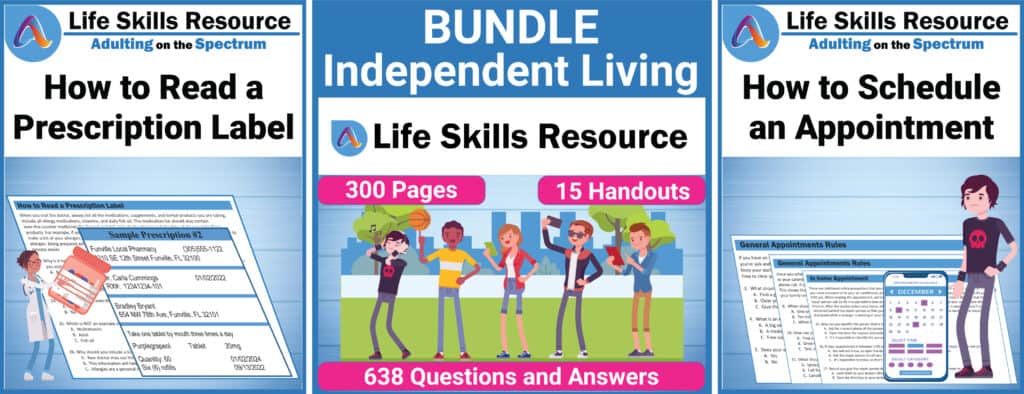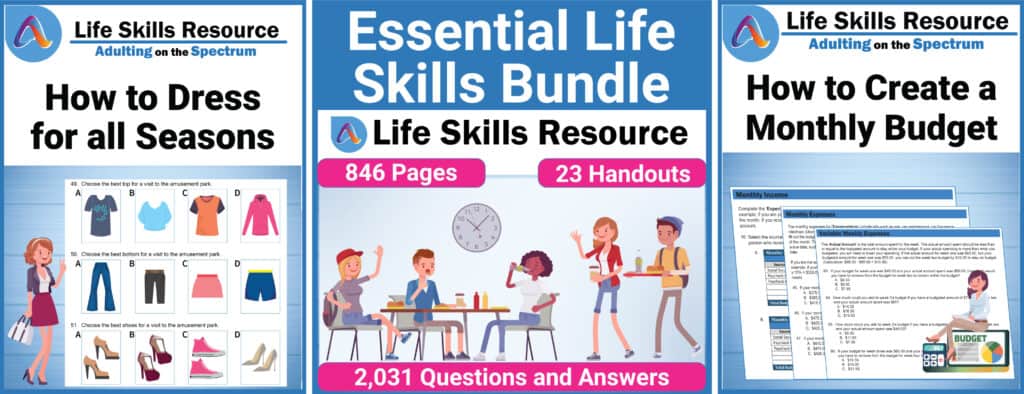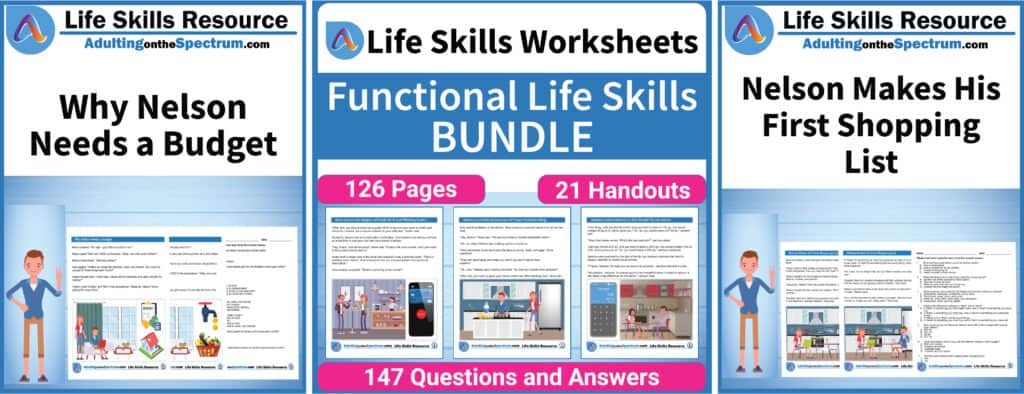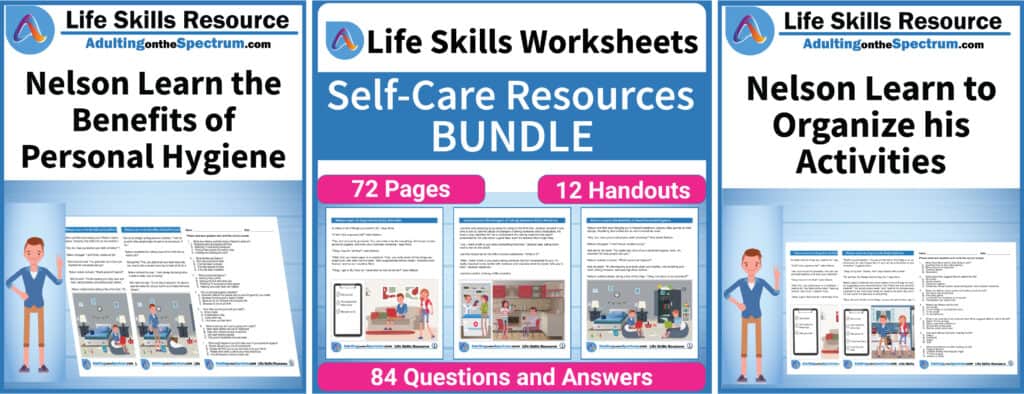Being the parent of an adult child with autism has been an incredible journey filled with unique challenges and joys. Equipping our children with essential life skills becomes a top priority as they transition into adulthood. Life skills such as communication, self-care, and independent living are crucial for their self-sufficiency and overall well-being. In this blog post, we’ll explore innovative classroom strategies and resources that life skills teachers can use to help our adult children with autism thrive.
Understanding the Importance of Life Skills
Life skills are the building blocks of independence for adults, including those on the autism spectrum. These skills encompass various areas such as cooking, personal hygiene, budgeting, time management, and more. They empower our loved ones to lead fulfilling lives and contribute to their communities. Recognizing the significance of these skills is the first step towards supporting our adult children.
The Role of Life Skills Teachers
Life skills teachers play a vital role in shaping the future of individuals with autism. They provide guidance, encouragement, and a safe space for our children to learn and practice these essential skills. Collaborating closely with these teachers is necessary for our children’s growth and development.
Tailored Resources for Effective Learning
One of the keys to success in teaching life skills to individuals with autism is using tailored resources. These resources should be adapted to accommodate different learning styles and abilities. Visual aids, social stories, and hands-on activities are practical tools that make learning engaging and accessible.
Innovative Classroom Strategies
Life skills teachers can employ innovative classroom strategies that cater to the unique needs of their students. Small group activities, role-playing, and real-life simulations create a supportive and interactive learning environment. These strategies help our adult children build confidence and competence in various life skills.
The Power of Visual Supports
Visual supports are beneficial for individuals with autism. Visual schedules, step-by-step guides, and visual cues can assist in teaching life skills effectively. These tools provide clarity and structure, making tasks less overwhelming and more manageable.
Encouraging Independence
Promoting independence is a cornerstone of teaching life skills to adults with autism. Life skills teachers can gradually increase the level of autonomy as our children progress. Celebrating even the smallest achievements is essential, as they contribute to a sense of pride and accomplishment.
Fostering Social Skills
Life skills extend beyond practical tasks; they also encompass social skills. Teaching our adult children how to communicate effectively, navigate social situations, and build relationships is equally important. Life skills teachers can incorporate social skill-building activities into their curriculum.
Community-Based Learning
Taking learning outside the classroom and into the community can be highly beneficial. Trips to grocery stores, banks, or local businesses provide practical, real-life experiences reinforcing the importance of the skills being taught. These outings also help our adult children feel more comfortable in different environments.
Patience and Persistence
As parents, it’s crucial to be patient and persistent in supporting our adult children’s journey towards independence. There may be setbacks and challenges along the way, but with our unwavering belief in their capabilities, we can help them overcome any obstacles.
Building a Supportive Network
Building a supportive network is essential for both parents and teachers. Connecting with other parents of adults with autism, attending support groups, and sharing experiences can provide valuable insights and emotional support. Together, we can celebrate successes and navigate the challenges of raising independent and empowered adults with autism.
Preparing for the Future
Teaching life skills is not just about the present; it’s about preparing our adult children for a bright future. Encourage discussions about their goals and aspirations. Work with life skills teachers to create individualized plans focusing on the skills needed to achieve those dreams.
The journey of teaching life skills to our adult children with autism is filled with opportunities for growth and empowerment. Life skills teachers and the support of parents and the community play a crucial role in this journey. By utilizing innovative classroom strategies and tailored resources, we can help our loved ones on the autism spectrum develop the skills they need to lead fulfilling and independent lives.
As parents, let’s continue working with these dedicated educators to ensure a brighter future for our adult children. Celebrate every step of progress, no matter how small, because every achievement brings us closer to our goal of empowering our children to thrive in the world. Adulting on the Spectrum is dedicated to providing resources for individuals with autism to develop life skills and gain independence.









Great article! I appreciate the clear and insightful perspective you’ve shared. It’s fascinating to see how this topic is developing. For those interested in diving deeper, I found an excellent resource that expands on these ideas: check it out here. Looking forward to hearing others’ thoughts and continuing the discussion!